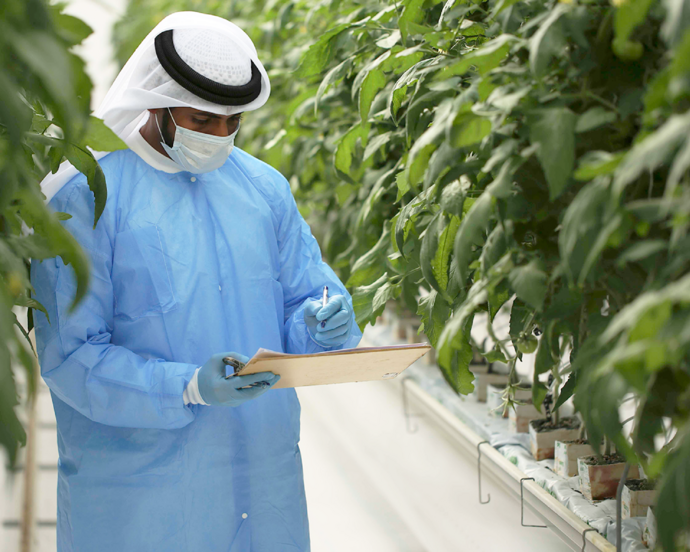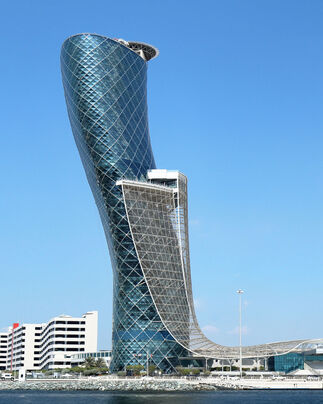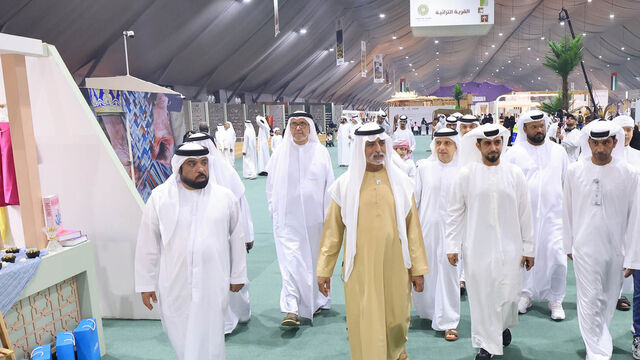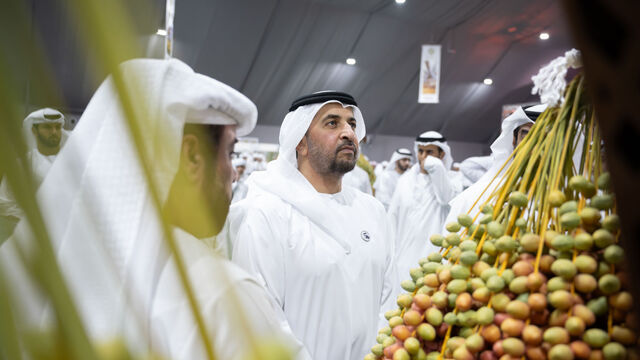Abu Dhabi’s agricultural production has achieved remarkable growth in terms of volume and value, thanks to the directives of His Highness Sheikh Mansour Bin Zayed Al Nahyan, Deputy Prime Minister, Minister of Presidential Affairs, and Chairman of the Abu Dhabi Agriculture and Food Safety Authority (ADAFSA), towards increasing the share of agricultural sector in the emirate’s GDP.
In 2020, the total value of agricultural production reached about AED 13.7 billion, with an increase of 12% compared to 2019, growing at a compound annual growth rate of 6.5% for 2017-2020. This resulted in increasing the agricultural sector’s contribution to Abu Dhabi’s GDP to 1.1% last year, compared to 0.8% in previous years.
The agricultural sector which includes both plant and animal production is one of the most important economic activities in Abu Dhabi, and its contribution to the GDP is determined after considering all economic activities and sectors.
The significant increase in the agricultural production comes in line with Abu Dhabi’s aspirations to develop an integrated and flexible food system. Such accomplishment is attributed to plans developed and implemented by ADAFSA to fulfill the government goals.
Furthermore, ADAFSA is keen on promoting the best farming practices, techniques and systems, especially vertical farming for its ability to produce 5 to 10 times more than traditional farming. In addition, the Authority encourages farm owners to use modern irrigation systems to rationalize water consumption, algorithms to identify potential risks of livestock disease outbreak, and agricultural research outcomes to grow climate-appropriate plants.
Likewise, ADAFSA is working on increasing competitiveness of local produce in the market. To that end, ADAFSA launched the “Abu Dhabi GAP” program, the local version of the GLOBAL GAP, which applies standards of quality agricultural production to ensure food safety, sustainable environmental and the health of food handlers. On the other hand, ADAFSA encourages transition from conventional to organic farming by awarding relevant licenses to some farm owners.
Statistics collected by ADAFSA, in collaboration with the Statistics Center Abu Dhabi (SCAD), show the total local agricultural production hit 707,774 tons in 2020. Crop production reached 421,524 tons, about 59.6% of the total agricultural production, with an increase of 33% compared to that of 2017. However, animal production increased by 27%, accounting for about 40.4% of the agricultural production with nearly 286,250 tons.
Regarding animal production, the emirate’s commercial farms produced about 168,273 tons of cow milk (58%), 50,718 tons of poultry meat (18%), 42,916 tons of table eggs (15%), and 25,662 tons of red meat (9%).
Meanwhile, dates made up 61% of the total plant production with about 258,335 tons, compared to 39% of vegetable and fruit production, amounting to163,189 tons.
According to ADAFSA, the animal and plant production, without feed, is expected to reach 741,886 tons, rising by 33% compared to production in 2017, and an increase of 5% compared to that of 2020.
By surveying all commercial and small-scale farms in Abu Dhabi, animal production is expected to increase by 62% compared to that of 2017, and by 12% compared to production in 2020. However, vegetable and fruit production is expected to grow by 16.5% compared to that of 2017.
ADAFSA seeks to fulfill the aspirations of farm owners by enabling them increase local production, improve its competitiveness in the market, and advance self-sufficiency rates of local products.
In collaboration with strategic partners from the public and private sectors, ADAFSA is keen on developing some initiatives to create various marketing channels for local products, thus helping small-scale producers market their products and promote Abu Dhabi's farms products in markets. ADAFSA also provides various services to build capacities of farmers and livestock breeders, as well as encouraging them to adopt the best farming practices.










